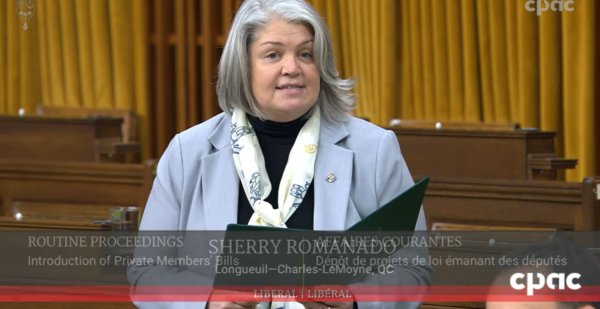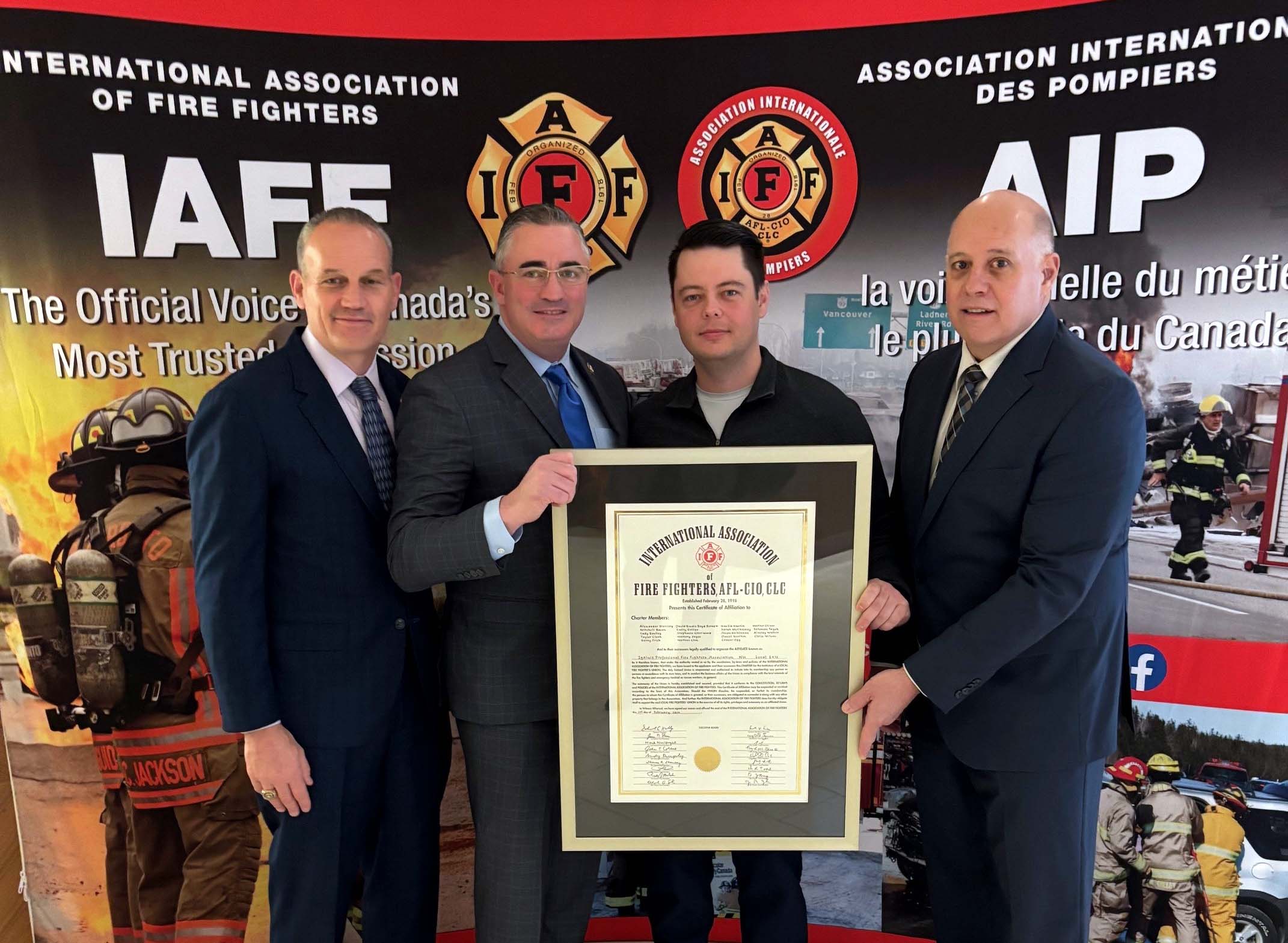The most important issue facing our profession took an important step forward January 31 with the introduction of a Private Member’s Bill in Canada’s House of Commons that proposes a national framework for the prevention and treatment of cancers linked to firefighting.
Bill C-224, introduced by Liberal MP Sherry Romanado (Longueuil-Charles-LeMoyne, QC), also asks the Canadian government to formally declare January as Fire Fighter Cancer Awareness Month in Canada.
The IAFF is grateful to MP Romanado for giving important attention to occupational cancer, which is an epidemic in the fire service and is by far the leading cause of line-of-duty death among professional fire fighters in Canada. She introduced Bill C-224 after discussions with Montreal Local 125 President Chris Ross about the toll cancer has taken on his membership.
General President Edward Kelly welcomed news of the bill’s introduction. “Cancer is the number-one killer of fire fighters,” he says. “We’re grateful to MP Romanado for Bill C-224, which proposes measures to fight it. The IAFF will continue to work with her on this and I urge all Canadian MPs to pass Bill C-224 and join us in our battle to extinguish cancer.”
Upon introducing Bill C-224, MP Romanado stated that every day, fire fighters put their lives on the line to keep Canadians and our communities safe, but that a fire fighter’s cancer may or may not be recognized as occupational depending on the province or territory in which they live.
“Awareness, education and information sharing are critical to the prevention and early detection of cancers linked to firefighting,” she stated in the House of Commons. “This bill is about saving lives, and I hope all members of the House will support it.”
Bill C-224 proposes national standards for firefighting and cancer, including an explanation of the link between the disease and the profession, measures to educate healthcare and other professionals on prevention and treatment, providing regular cancer screening for fire fighters, promoting research and data collection and the sharing of information and knowledge about cancer and its impact on fire fighters. By establishing national standards, the legislation would help individual provinces and territories identify the full list of cancers that are linked to the profession and should be presumed occupational for the purpose of worker’s compensation benefits.
According to the IAFF Line of Duty Death Database, 408 Canadian IAFF members died in the line of duty as the result of occupational cancers during the 10-year period between 2012 and 2021. These were members whose cancers were formally accepted as job-related by their respective provincial worker’s compensation boards, in most cases facilitated by presumptive legislation. The true number of fire fighter cancer deaths among Canadian fire fighters during that timeframe is likely higher, considering that not all provinces and territories formally recognize all the same cancer types as occupational among fire fighters.
Quebec recently enacted presumptive legislation for its fire fighters, becoming the last province to do so, but it only recognizes nine types of cancer as occupational. Ross says he is grateful to MP Romanado and that he hopes that Bill C-224 brings attention to the full scope of the disease’s impact on Quebec fire fighters and that the province works to improve its coverage.
“Cancer is a true epidemic in the fire service. It is, in its various forms, the main cause of death in service among Montreal fire fighters, and it is the same in all of Canada,” Ross says.
The text of Bill C-224 is available online at https://www.parl.ca/DocumentViewer/en/44-1/bill/C-224/first-reading.




